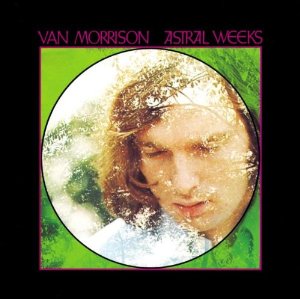 The best two essays I’ve read recently both concern Van Morrison and can be found in an semi-obscure tome of rock criticism published by Knopf and edited by Greil Marcus called Stranded: Rock and Roll For a Desert Island, initially released in 1979. The idea behind Stranded is a simple one: get twenty rock critics to pick and write about their ‘desert island’ record. Only one artist had more than one record chosen: Van Morrison; M. Mark (then Arts editor of the Village Voice, now Professor of English at Vassar) opens the collection with a beautifully sprawling take on Van Morrison’s 1974 live album “It’s Too Late to Stop Now”, and later on immortal rock critic Lester Bangs (memorably portrayed by Philip Seymour Hoffman in Almost Famous) champions the seminal Astral Weeks in one of those essays that are perfectly personal.
The best two essays I’ve read recently both concern Van Morrison and can be found in an semi-obscure tome of rock criticism published by Knopf and edited by Greil Marcus called Stranded: Rock and Roll For a Desert Island, initially released in 1979. The idea behind Stranded is a simple one: get twenty rock critics to pick and write about their ‘desert island’ record. Only one artist had more than one record chosen: Van Morrison; M. Mark (then Arts editor of the Village Voice, now Professor of English at Vassar) opens the collection with a beautifully sprawling take on Van Morrison’s 1974 live album “It’s Too Late to Stop Now”, and later on immortal rock critic Lester Bangs (memorably portrayed by Philip Seymour Hoffman in Almost Famous) champions the seminal Astral Weeks in one of those essays that are perfectly personal.
Both of these writers are essentially trying to hammer home one overwhelmingly explicit point: you can talk about Van Morrison, the man, or Van Morrison, the recording artist, but what you should really be talking about is Van Morrison, the poet. Throughout her essay M. Mark maintains a discussion regarding the relationship between Van and W.B. Yeats; Bangs ends his with a juxtaposition between the opening lines of Astral Weeks and a section from Federico Garcia Lorca’s “Ballad of a Small Plaza.” These are both compelling comparisons: Yeats and Morrison share an Irish sense of romantic wilderness (brilliantly described by Marks as a lion’s howl), and one does get a strange sense of serendipity analyzing Lorca’s poem alongside Van’s lyrics, but ultimately neither of these come close to encapsulating the beauty of Van Morrison’s music.
Conan O’Brien once said that the problem writing about comedy is that “it’s like trying to hold a gas – the tighter you squeezes, the more it dissipates.” The same idea applies to music: the more you try to cage meaning the less likely you are to ever catch it. This is not to say, however, that Marks and Bangs wasted their time; if anything, it’s to say the exact opposite: these essays, like the best music criticism, are aware of the inherent impossibilities of the form, and, rather than shying away, embrace this futility. These essays, after all, aren’t academic dissertations – they are letters from fans.
And still, with that all being said, I am finding it hard to fight the impulse of comparing “Into the Mystic” to a John Ashbery poem, or the exuberant chorus of “Caravan” to the wild ecstasy of “Kubla Khan”, but I will not give into these urges, and will leave you instead to these two thoughts: one – if you’ve never heard Astral Weeks, download it illegally, or listen to it on Youtube, or Spotify, or whatever, and do it today, right now, and, two – if I could live anywhere it would be within “Brown-Eyed Girl”, somewhere between the cracks of infinite space in sha la la la la la la la la la la te da.
This post may contain affiliate links.








